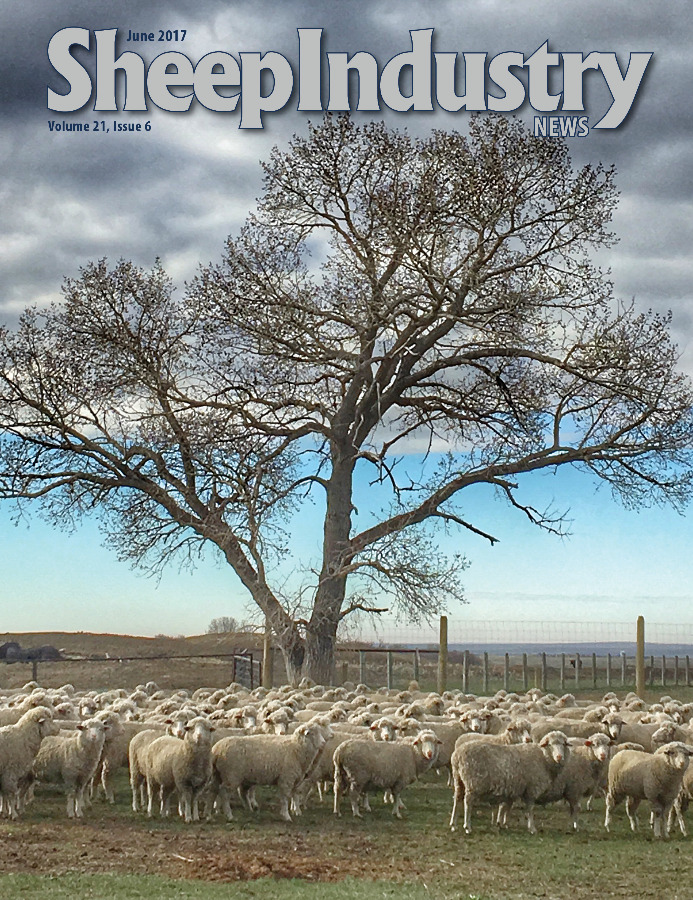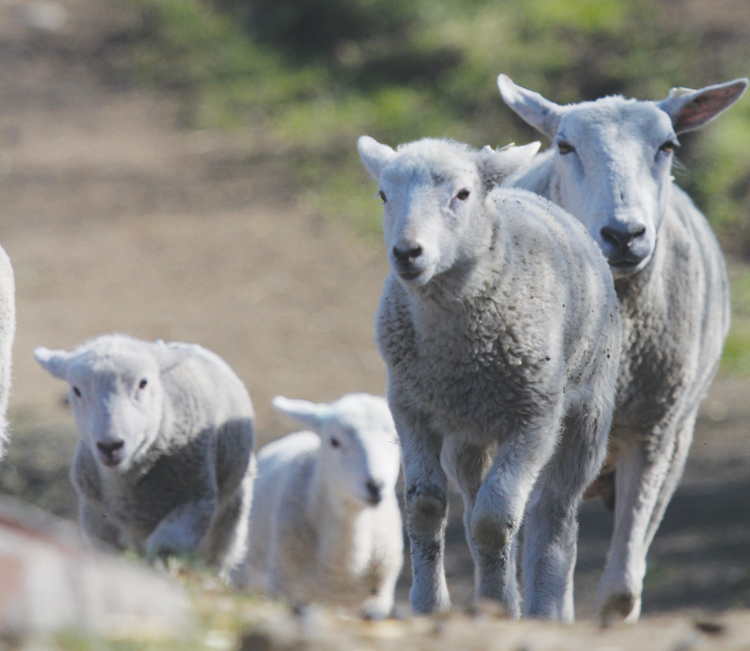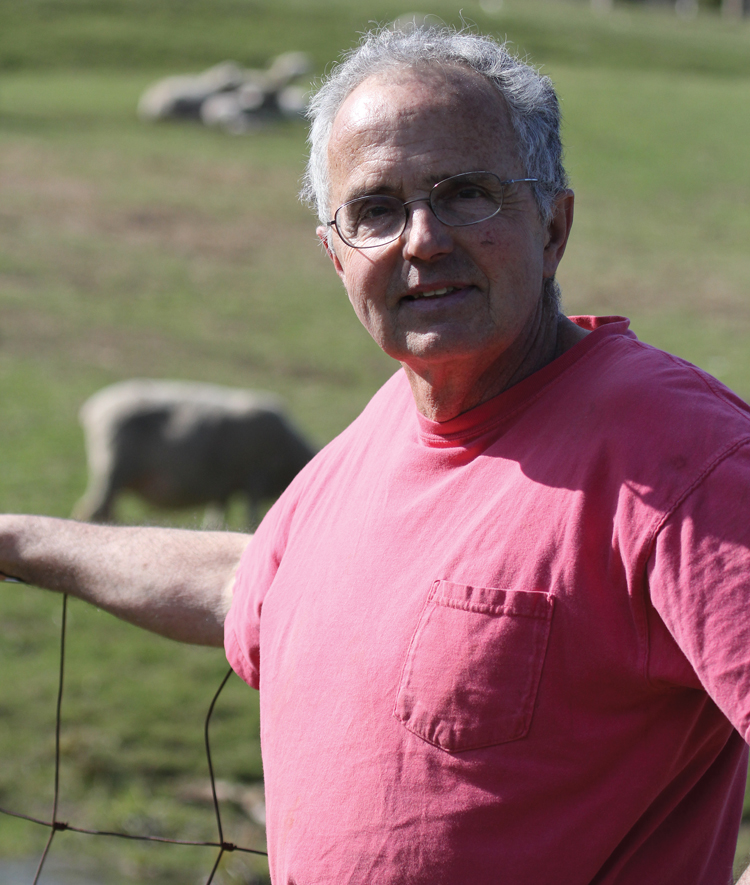
- June 2017
- President’s Notes
- ASI Submits Nominees for ALB, NSIIC
- Industry Sets Research Priorities
- Photo Contest Now Open
- Vermont Natural Lamb
- Opportunities to Expand
- Let’s Grow Supports Education
- Let’s Grow Awards Round Five Grants
- NSIP Certification Launches
- ASI Represents Industry at IWTO
- Market Report
- California Ram Sale a Success
- Nasal Swabs Needed for Research
- The Last Word
Vermont Natural Lamb
One of the State’s Larger Sheep Producers Offers Thoughts on the Industry
 Vermont does small-scale agriculture at a big-time level, commanding a premium for state-branded products ranging from maple syrup to cheese to lamb despite the fact that many of the operations producing such products are hobby farms or second careers for those who run them. Sheep producers Dave and Donna Martin started with one lamb some 30 years ago and turned Settlement Farm into one of the state’s largest producers of all-natural lamb. Now retired from a state job in social work, Dave offers some thoughts for small-scale producers looking to make a successful run in livestock.
Vermont does small-scale agriculture at a big-time level, commanding a premium for state-branded products ranging from maple syrup to cheese to lamb despite the fact that many of the operations producing such products are hobby farms or second careers for those who run them. Sheep producers Dave and Donna Martin started with one lamb some 30 years ago and turned Settlement Farm into one of the state’s largest producers of all-natural lamb. Now retired from a state job in social work, Dave offers some thoughts for small-scale producers looking to make a successful run in livestock.
“I’ve lambed around 100 ewes each year the last couple of years, which doesn’t make me very big compared to a lot of sheep operations in this country,” Dave admits. “Some of those guys out west are running multiple bands with a 1,000 sheep in each band. But I’m about as big as sheep producers get in Vermont, where we work on a smaller scale.”
Dave quickly puts to rest any rumors that he retired from Vermont’s Department of Children and Families – where he supervised eight social workers in the areas of juvenile justice and child protection – because his sheep operation became too lucrative to justify heading to an office everyday.
“My job was the reason I could afford to farm for a lot of those years,” he admits. “But I was happy to be able to retire and come home to work on the farm full time. When I was working, there were times of the year when I rarely saw the animals in the daylight during the week. I’d go to the barn before work in the dark and go out again after work in the dark. It’s easy to miss small, but important details when you have to work that way.”
Like most in Vermont agriculture, Dave’s Underhill, Vt., operation is based in an old dairy barn. There’s no shortage of space to work with for lambing, shearing and storing the wool that more often that not ends up in the state wool pool. As is also typical for the state, there’s not a completely flat pasture anywhere on the place. Not that the sheep are complaining; more than a few lambs come bounding up a nearby hill at full speed with less energetic ewes trailing behind. It’s a great way to condition the sheep.
Through an association with Black River Meats, Dave and Donna have found the perfect home for their lamb in recent years. The company offers Vermont Antibiotic-Free Lamb, in addition to beef and pork. Again, the Vermont brand on the package adds value.
 “As a small producer, you really have to develop a relationship with your processor,” Dave says. “You have to see that processor as a partner in your business. You have to understand that they are a small business too. If you’re supposed to be there at 9 a.m. and don’t show up until 10, then they’ve paid a crew to sit around for an hour. Remember that even if it’s a hobby farm, it is a business with customers. You have to give the customers what they want or you won’t be in business for very long.”
“As a small producer, you really have to develop a relationship with your processor,” Dave says. “You have to see that processor as a partner in your business. You have to understand that they are a small business too. If you’re supposed to be there at 9 a.m. and don’t show up until 10, then they’ve paid a crew to sit around for an hour. Remember that even if it’s a hobby farm, it is a business with customers. You have to give the customers what they want or you won’t be in business for very long.”
Black River routinely provides carcass information that allows Dave to make important breeding decisions each year, going so far as to send specific carcass photos pointing out what the company is looking for from his lambs.
“We’ve changed breeds several times through the years, from Dorsets to Rambouillets to Columbias. We were always in search of a better carcass,” Dave says. “One year somebody gave us what we believed to be a Montadale ewe. She was the best ewe: always got pregnant with twins, great mother, raised nice lambs. We’ve stuck with them ever since. The hardest part has been finding a good Montadale ram some years.”
As a small producer, Dave often finds himself in a position to educate consumers about not only his product but agriculture in general.
“We have to help the public understand and value small-scale agriculture,” he adds. “For example, restaurants where they serve all local meat and produce are very popular right now. But some people go there and wonder why it’s so expensive. We have to help them understand the value of that product.
“People don’t realize how challenging agriculture really is. Every decision we make with the animals and with the land is a complex science. It’s fine to market grass-fed lamb, but if you’re going to do that, you’d better know how to maintain that pasture. Grass is wonderful, but to grow good grass you’ve got to understand the science behind it.”

